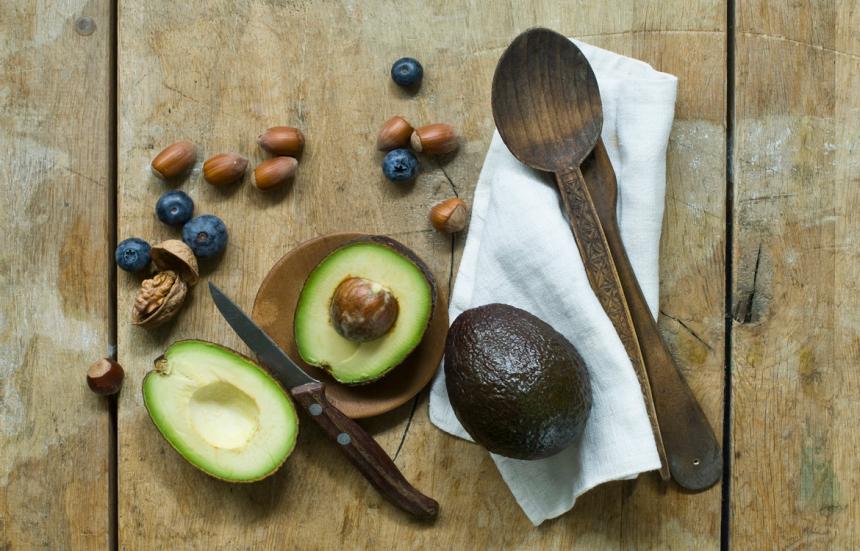5 Dietary Tips to Lower Risk for Depression and Anxiety

Poor mental health is a significant problem in the U.S. In fact, about 1 in 4 American adults struggles with a mental health condition. Of all the mental health illnesses, anxiety is the most common, affecting 40 million adults. Depression, also very common, touches nearly 21 million Americans. And about half the people suffering with anxiety also suffer with depression, and vice versa.
Effective treatment plans are available to help manage anxiety and depression. Instead of waiting to be diagnosed, you can take steps to help prevent it, such as:
- Exercising
- Avoiding alcohol, cigarettes, marijuana and other drugs
- Meditating
- Learning your triggers
- Getting support
Recent studies also suggest that nutrition can play a role in preventing anxiety and depression.
Foods that Help Ease Anxiety and Depression
When you’re stressed, anxious or depressed, it’s common to crave comfort foods that tend to be high in:
- Fat
- Carbohydrates
- Salt
- Sugar
These are obviously not the best choices from a nutrition standpoint. Instead, try these 5 tips to feed your brain:
- Get enough antioxidants
- Decrease sugar
- Avoid salty snacks
- Raise your omega-3 fatty acids intake
- Elevate dopamine levels
Get enough antioxidants
These are natural or man-made substances that help prevent or slow cellular damage caused by free radicals -- unstable molecules produced by your body in response to environmental factors. An imbalance between free radicals and antioxidants results in oxidative stress, which has been linked to anxiety and depression (among other conditions). One way to counteract oxidative stress is to eat good sources of antioxidants, which include:
- Herbal tea is abundant in antioxidants, particularly calming teas like lavender and chamomile. Almost all herbal teas are decaffeinated, which is good news if you’re watching your caffeine intake.
- Fruits and vegetables have polyphenols, micronutrients that occur in fruits, vegetables, herbs and teas. Polyphenols are strong antioxidants that neutralize free radicals. A recent survey found the more often people ate fruit, the lower their risk for depression and the higher the chances of mental wellbeing, according to a study published in Cambridge Core. Fruits and vegetables that are great sources of antioxidants include berries, oranges, spinach, broccoli, carrots, potatoes, artichokes, cabbage, asparagus, avocadoes, beetroot, radish, lettuce, sweet potato, squash, pumpkin, collard greens and kale.
- Antioxidant supplements are an option if you’re routinely exposed to environmental factors like UV radiation, tobacco smoke and industrial chemicals. However, if your supplement dosage is too high, it can have the opposite effect. This is why it’s so important to discuss dietary supplements with your primary care doctor before taking them.
Decrease Sugar
Sugary foods and beverages seem to increase the likelihood of an occurrence of anxiety and depression in men and may cause recurrent mood disorders in both genders, according to a study published in Nature. Some experts attribute a high sugar intake to inflammation, which has been linked to depression. Sugary foods also contribute to unstable blood sugar levels, which can cause anxiety. Ironically, when you’re stressed, you probably crave sugary foods. But a high consumption of sugar can weaken the psychological and physiological response to stress, leading to anxiety and depression, according to a study published in Current Opinion in Behavioral Sciences.
Avoid salty snacks
Stress also triggers a longing for salty, savory snacks like chips, pretzels and microwave popcorn. Studies also suggest that highly processed, nutrient-poor foods such as these can affect psychological health. People who eat salty snacks on a regular basis were more likely to have daily mental lapses. The number of lapses experienced was associated with how much salty, savory foods are consumed. People who regularly eat these foods also report a poorer mental wellbeing, according to the British Journal of Nutrition.
Raise your omega-3 fatty acids intake
Studies are mixed regarding the power omega-3 fatty acids have over controlling anxiety and depression. However, research has found that omega-3 fatty acids are essential for the proper functioning of receptors in the cell membranes, which are the starting gates for a handful of functions including hormone production and inflammation that can affect your level of anxiety and/or depression. Good sources of omega-3 fatty acids include fatty fish like Alaskan salmon, mackerel and herring; and nuts and seeds such as walnuts, flaxseed and chia seeds.
Elevate dopamine levels
Dopamine is naturally occurring chemical responsible for transmitting signals to neurons (or brain cells). It’s involved in controlling emotions, actions and reactions. Foods rich in vitamin B like avocadoes and almonds and zinc like beef, egg yolks and cashews can help raise dopamine levels.
“Talk to your primary care physician if you’re experiencing anxiety and depression. They can suggest lifestyle changes, prescribe medication or refer you to a specialist,” says Kaminetsky. “And talk to your doctor before making any dietary changes. Some foods – even healthy foods – can interact with medications.”
Looking for a primary care physician? Physicians in MDVIP-affiliated practices can customize a wellness plan for you. Find an MDVIP affiliate near you and begin your partnership in health »


